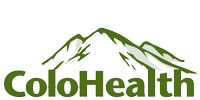
The ColoHealth Health & Wealth Newsletter
February 2025
Vol. 28, Issue 2
Nutrition Myths Debunked: What We Know Now
Back in the Dark Ages, when people still believed in the FDA’s “Food Pyramid” with all the flour and bread products at the bottom, I got a degree in nutrition and exercise science.
Fitness, wellness, and nutrition have been passions of mine for many years, and so it’s been fascinating to see new discoveries reshape what we thought we understood about foods, weight loss, and nutrition. The fact is much of what we thought we knew was wrong – or at least incomplete.
Here’s a look at four of the biggest new developments in wellness and nutrition.
1.) Fat Is Good For You, Actually.
A generation ago, we still thought fats were dangerous across the board.
Delicious, but dangerous.
We thought low-fat diets would help reduce cholesterol build-up, prevent heart disease, and promote weight loss.
But we now know that not all fats are equal. Some fats, like omega-3 fatty acids, are essential for brain health and hormone production. Diets rich in monounsaturated and polyunsaturated fats (i.e., olive oil and salmon) like the Mediterranean diet, actually support cardiovascular health.
Good sources of healthy fats include fatty fish like salmon and mackerel, edamame, olives, and cheese. But trans fats are an unmitigated menace. This is a type of fat associated with food processing and preservatives. Trans fats are like a gun pointed right at your cardiovascular system. There is no “safe” level of consumption. They’re so bad, they’re officially banned in the United States.
While we’re at it, here’s a good breakdown of the basic types of dietary fats, how to include them in your diet, and a few words about the health effects of each one:
Main Types of Dietary Fats
1. Saturated Fats
Common Sources:
- Animal products: Butter, cheese, red meat, pork, chicken skin.
- Tropical oils: Coconut oil, palm oil.
- Processed foods: Baked goods, fried foods.
Health Impact:
- Saturated fats can raise LDL (bad) cholesterol levels, possibly increasing the risk of heart disease. However, recent research suggests that the context of the overall diet matters—whole food sources like dairy may have a more neutral impact compared to processed foods.
Tips:
- The USDA recommends limiting saturated fats to less than 10% of daily calories (but many experts are beginning to challenge this dogma)
- Eat grass-fed meat, which will have a healthier fatty acid profile
- Favor fresh meat and fish over cold cuts and preserved meats
2. Monounsaturated Fats
- Common Sources: Olive oil, avocado, nuts (almonds, cashews, peanuts), and seeds.
- Health Benefits: Lower LDL cholesterol, improve HDL (good) cholesterol and reduce heart disease risk.
Tips:
- Use olive oil or avocado oil for cooking
- Keep some nuts around for snacks
- Balance omega-3 and omega-6 fats limit seed oils like canola or corn oil, which have more pro-inflammatory omega-6 fats
3. Trans Fats (Eliminate.)
Common Sources:
- Artificially hydrogenated oils: Margarine, shortening.
- Processed foods: Packaged baked goods, fried fast food, microwave popcorn.
Health Impact:
- Trans fats increase LDL (bad) cholesterol and decrease HDL (good) cholesterol, significantly raising the risk of heart disease and inflammation.
Tips:
- Avoid trans fats entirely. There is no “safe” level of trans fats. In fact, they’ve largely been banned in commercial foods in the U.S.
- Check ingredient labels for “partially hydrogenated oils,” even if the label claims “0 grams trans fat.”
4. Omega-3 Fatty Acids (A Type of Polyunsaturated Fat)
Common Sources:
- Fatty fish: Salmon, mackerel, tuna
- Plant sources: Flaxseeds, chia seeds, walnuts, algae oil
Health Impact:
- Omega-3 fatty acids support brain health, reduce inflammation, and lower the risk of heart disease, depression, and arthritis.
Dietary Guidance:
- Aim for at least 2 servings of fatty fish per week.
- Supplement with algae oil or fish oil if necessary, especially if you don’t eat fish.
5. Omega-6 Fatty Acids (A Type of Polyunsaturated Fat)
Common Sources:
- Vegetable oils: Corn oil, soybean oil, sunflower oil
- Processed foods: Salad dressings, mayonnaise, snack foods.
Health Impact:
- In moderation, omega-6 fats are essential for brain function and cell health. However, excessive intake (relative to omega-3 fats) may promote inflammation.
Tips:
- Reduce reliance on processed seed oils, such as canola oil or corn oil.
- Balance omega-6 intake with omega-3-rich foods.
- Use olive oil (which has moderate levels of omega-6) for cooking and salad dressings.
2.) It Turns Out All Calories Aren’t Equal, After All.
We thought that weight loss was just a matter of maintaining a calorie deficit: Calories in versus calories out. And it didn’t matter whether the calorie was from protein, fat, or carbohydrates.
Well, the calorie deficit is still the single most important factor in weight loss success.
But we now know that the source of the calories you take matters. A lot.
The fact is that highly processed foods actually disrupt hunger hormones, stimulate appetite, and are associated with weight gain. Whole, nutrient-dense foods satisfy hunger better and improve metabolism.
That means you burn calories more efficiently. Which makes it way easier to shed those extra pounds.
3.) Eating Cholesterol is Fine.
A generation ago, most people thought that cholesterol-rich food like eggs could be dangerous because cholesterol causes blockages.
But we now know that for most people, dietary cholesterol isn’t the culprit. The real dangers were dietary trans fat and added sugars all along.
Meanwhile, some ways of eating seem to increase your high-density lipid cholesterol, or “good” cholesterol. HDL molecules act like sponges that sweep up more dangerous low-density limpid (LDL) molecules in the bloodstream and prevent them from accumulating and causing an arterial blockage.
Here are the two basic types of cholesterol, and foods that may increase their levels:
- HDL (good cholesterol): fatty fish, olive oil, nuts (almonds, walnuts), seeds (flaxseeds, chia), avocado, beans
- LDL (bad cholesterol): Deli meat, full-fat dairy products, fried foods, processed snacks, and baked goods made with trans fats
Most people also find that a lower carbohydrate diet will raise HDL.
4.) Seed Oils are More Problematic Than We Thought.
For years, public health scientists thought seed oils like sunflower, soybean, and canola were healthier alternatives to animal fats.
New research is showing that seed oils may have some risks::
- High Omega-6 Content: Excess omega-6 intake, without sufficient omega-3s, may promote chronic inflammation linked to diseases like heart disease.
- Processing and Refinement: Most seed oils undergo high-heat processing, producing trans fats and oxidation products that increase cardiovascular risks.
- Oxidative Instability: Seed oils oxidize when exposed to heat during cooking, leading to cellular damage and higher chronic disease risks. These oils are also linked to various types of inflammation.
- Potential for Overconsumption: Seed oils are prevalent in processed foods, leading to imbalanced fat intake and weight gain.
Some recent studies suggest some seed oil processing byproducts may interfere with hormonal functions. But these studies are inconclusive.
Final Thoughts
Remember: Nutrition science evolves.
And it will continue to evolve. What we think we know today won’t necessarily be the very best available information tomorrow.
In fact, count on it! If the past few years have shown us anything, it’s the importance of questioning old assumptions and embracing new evidence!
So make your adjustments, continue to pay attention to the new science, and always be building healthy eating habits.
Thanks as always for reading the MediGap Advisors Health and Wealth Newsletter. I hope you have a great month coming up, and I’ll “see” you in March!
To Your Health and Wealth,

Wiley P. Long III
President- ColoHealth
The ColoHealth Health & Wealth Newsletter is published monthly and emailed to subscribers at no charge. Subscribe now to stay on top of the critical information you need to know about health insurance, healthshare plans and managing your finances to achieve financial security.
© 2026 | Legal Information


